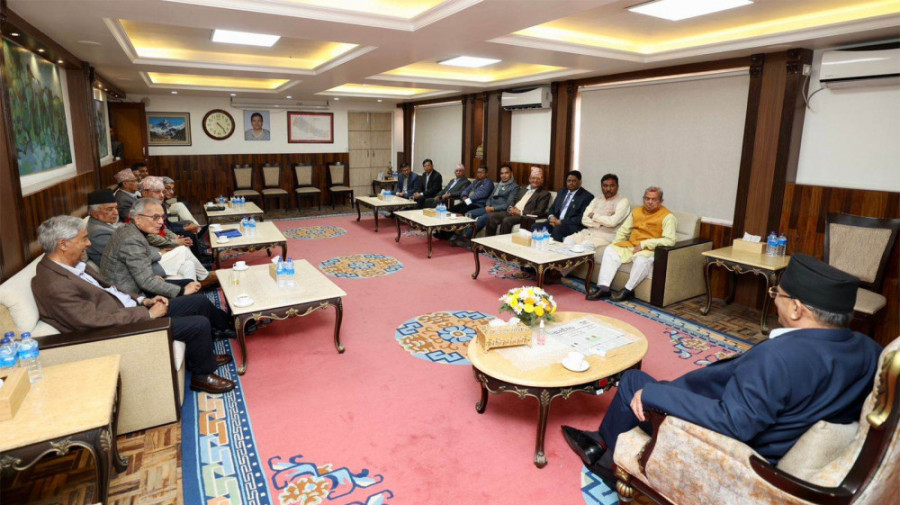Editorial
On autopilot
A sense of drift characterises the current coalition government. The country cannot afford it.
The ruling coalition seems rudderless. To start with, the coalition partners are clueless why they are in the coalition and/or in the government. For the common folks, it is hard to tell which parties are governing and which are not. The only reason a bunch of parties with disparate ideological orientations have come together, it appears, is to divide the government spoils between them. Sadly, this is true in the case of old and new parties alike.
There is no common ideological mooring to hold the ruling parties together. Apart from bickering over power sharing, the ruling parties have been fighting against each other on multiple issues. The coalition government unveiled its Common Minimum Programme on Thursday. But it couldn’t be a common document of all the coalition partners as some members immediately disowned it saying that they didn’t agree with a number of its policies and promises. Rastriya Janamorcha chair Chitra Bahadur KC even accused the government leaders of misusing his electronic signature in the document.
Leaders from Rastriya Swatantra Party, the fourth largest in the House of Representatives, didn’t sign it. The party that voted for the prime minister when he sought the trust vote in the House, didn't own it as the government supposedly excluded many of their pet anti-corruption issues. The ruling parties also failed to come up with common candidates for the bypolls scheduled for April 23 in three constituencies. As the campaign for the bypolls heats up, leaders, candidates and cadres from coalition partners are fighting each other tooth and nail. Coalition partners are slinging more mud at each other than they are at the opposition parties.
This wretched state of affairs again underscores the need to forge alliances based on common ideology, principles or goals. Otherwise, making and unmaking of alliances just to meet power goals of certain leaders could cost the country dear by deepening instability and adding to public disappointment. With the national economy in shambles, and unemployment and inflation increasing people’s hardships, it has become vital for the coalition partners to immediately come up with a clear vision and specific goals to be met by set deadlines. What people want are concrete plans to tackle the country’s financial problems and creation of enough decent-paying jobs to retain the country’s able-bodied youths. They want the government to come down hard on black-marketers whose extortionist ways are sucking them dry.
But nearly three and half months after becoming prime minister, for the third time, Pushpa Kamal Dahal seems to have his hands full just to keep his coalition intact. He also inspires little confidence. For example, Dahal instructs his ministers to shun ribbon-cutting and other unnecessary functions and focus on service-delivery. Yet he is seen attending at least two or three needless events every single day. To regain public trust, he must at once abandon the ritualistic tasks and get to the business of governing the country—at this vital time when the Covid-19 is again rearing its head and the national economy is running out of juice. If the country ever needed ‘the fierce one’ to show a sense of purpose, it is now.




 18.12°C Kathmandu
18.12°C Kathmandu














